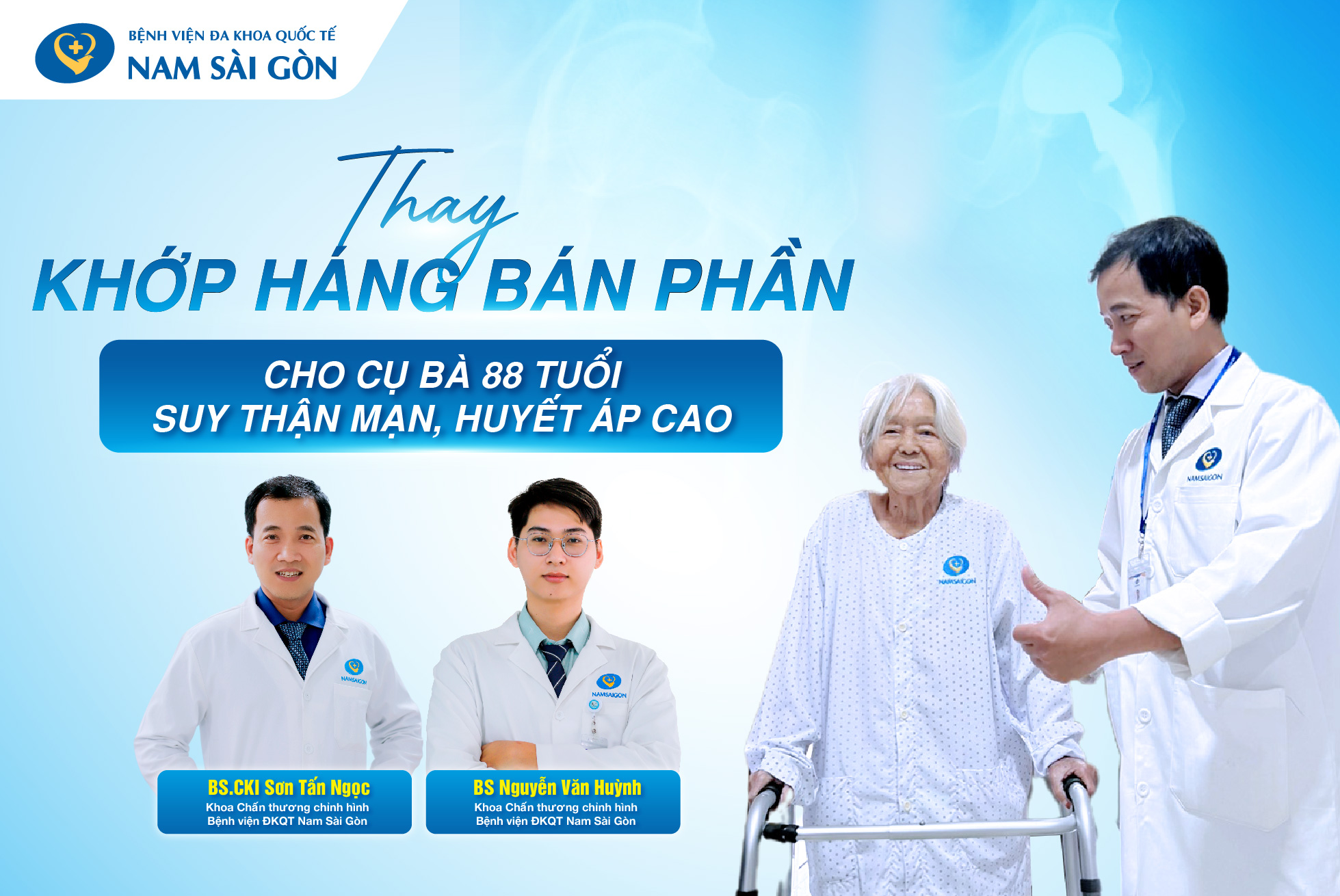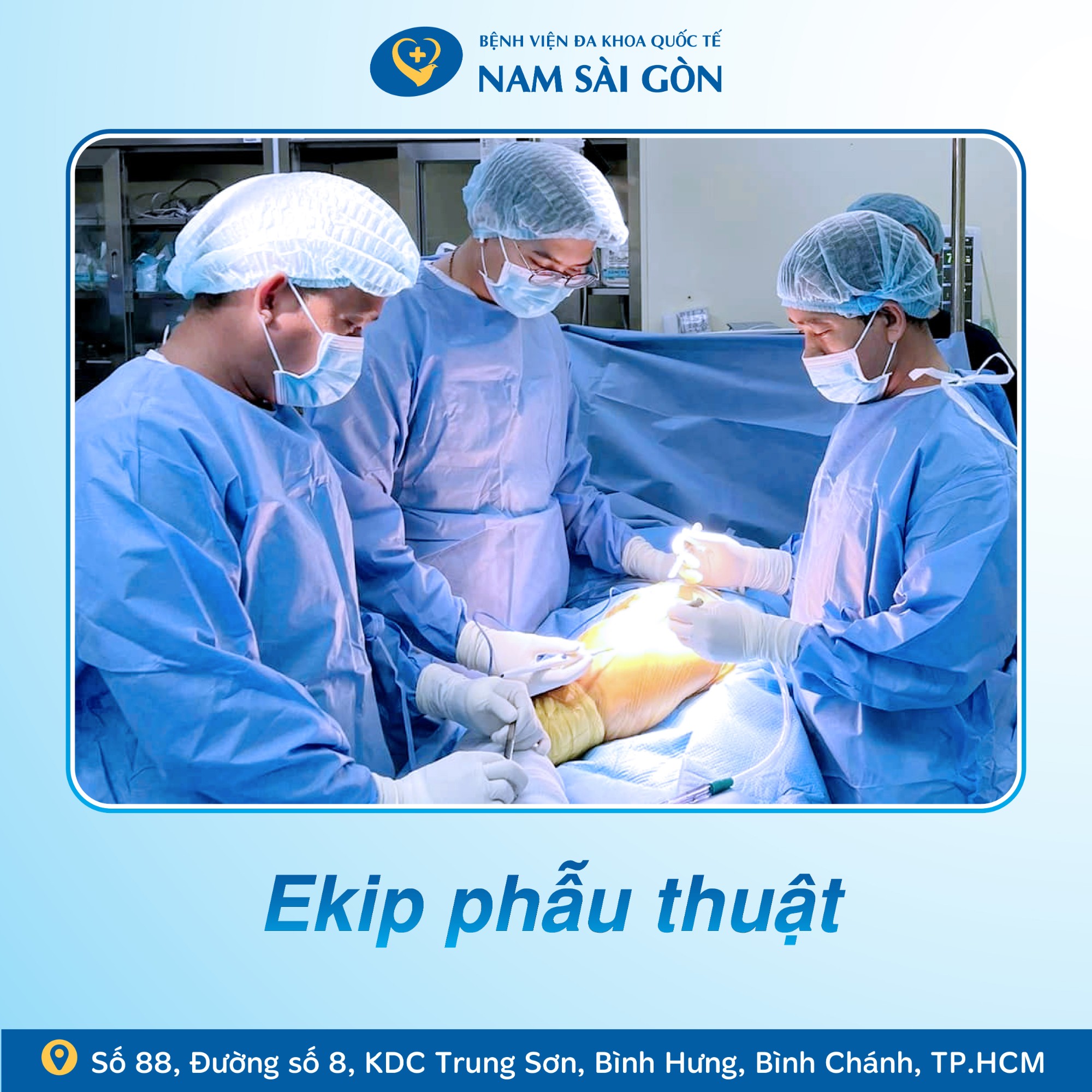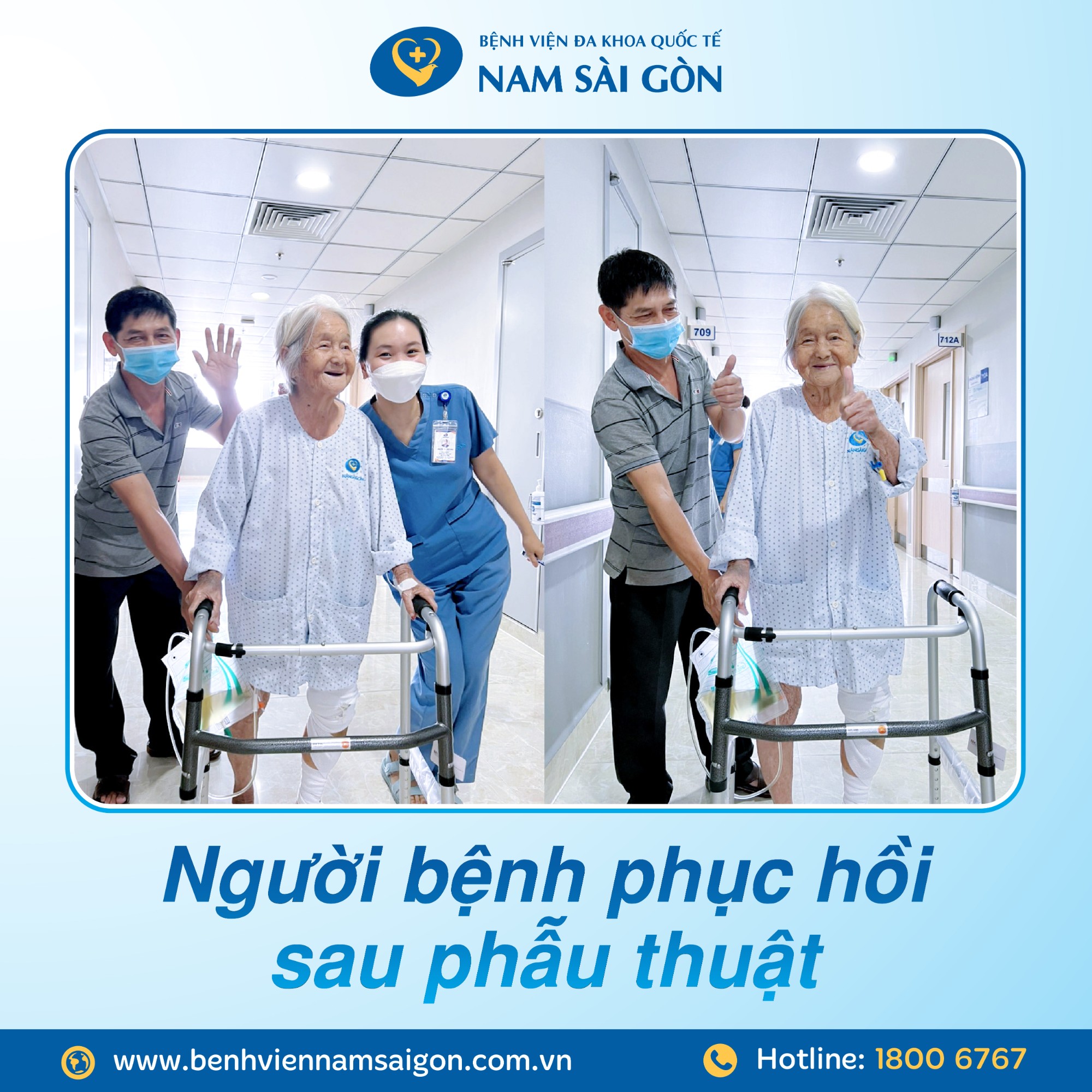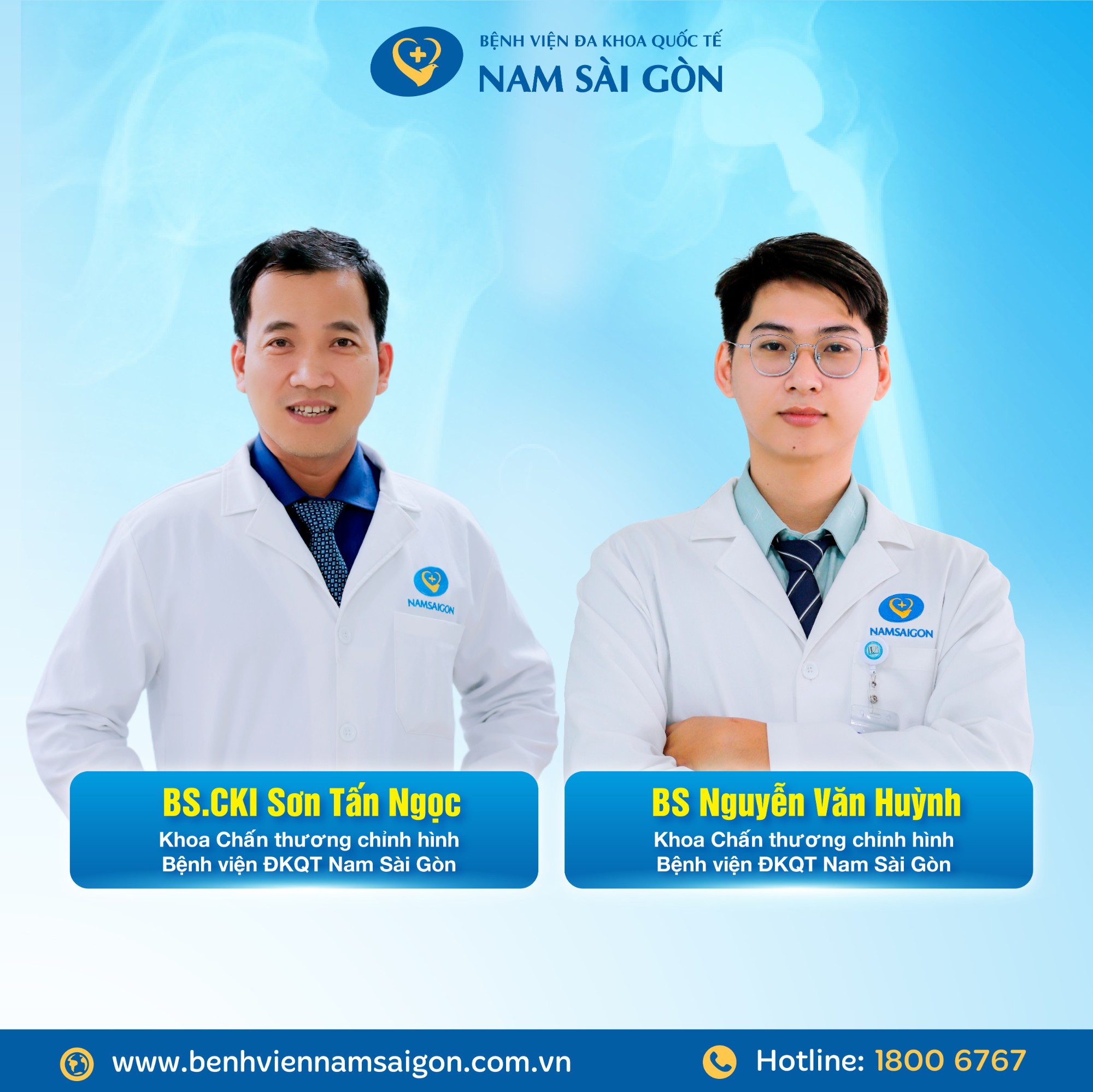PARTIAL HIP REPLACEMENT PERFORMED ON 88-YEAR-OLD WOMAN WITH CHRONIC KIDNEY DISEASE AND HYPERTENSION
-
Author: BỆNH VIỆN ĐA KHOA QUỐC TẾ NAM SÀI GÒN
-
18/10/2023
-
2,075
Performing hip replacement surgery in elderly patients with underlying health conditions presents major challenges for any surgical team. However, with comprehensive multidisciplinary collaboration between Cardiology, Internal Medicine, Orthopedics & Traumatology, Anesthesiology, and Rehabilitation at Nam Sai Gon International General Hospital, an 88-year-old woman was successfully treated and regained her mobility after two weeks of immobility and a life-threatening hip fracture.
Femoral neck fractures and intertrochanteric fractures are common in older adults, often caused by accidental falls. If not surgically treated, patients must remain bedridden for extended periods, leading to complications such as pressure ulcers, urinary tract infections, pneumonia, and severe functional decline — not to mention the emotional and physical burden placed on caregivers.
One week before hospitalization, Mrs. D.K. (88 years old, from Cambodia) fell at home and hit her left hip. Initially treated with traditional medicine, her condition did not improve. Upon referral, her family brought her to Nam Sai Gon International General Hospital for evaluation and care.
Partial hip replacement performed on 88-year-old woman with chronic kidney disease and hypertension

Diagnostic imaging revealed a complex intertrochanteric fracture of the left femur, with severe fragmentation, compounded by a history of chronic kidney disease and uncontrolled hypertension. Without timely surgical intervention, the patient faced a high risk of death due to complications such as infection, pressure sores, and organ failure.
Due to her weakened condition and comorbidities, Mrs. K. underwent intensive internal medicine care to stabilize her health prior to surgery. After one week of medical optimization, a multidisciplinary team decided to proceed with cementless long-stem partial hip replacement surgery.
According to Dr. Son Tan Ngoc, Specialist Level I, who performed the operation: “This was a highly complex case. The patient not only suffered a severe hip fracture but also had multiple underlying conditions — including mitral valve regurgitation, chronic kidney disease, and hypertension — that significantly increased the risk of surgical complications”.

The surgical team — Dr. Son Tan Ngoc, Specialist Level I, Dr. Nguyen Van Huynh, and anesthesiologists — performed the two-hour procedure successfully. Thanks to meticulous preoperative planning, intraoperative monitoring, and postoperative care, the surgery proceeded smoothly with controlled risk and no major complications.
Despite her advanced age, Mrs. K. recovered remarkably well. Within two days, she could sit up, eat, sleep comfortably, and reported significantly reduced pain. On postoperative day 4, she began assisted walking and was discharged after one week of hospital care.

“We are deeply grateful to the doctors”, her family shared. “Not only did they treat her hip fracture, but they also supported her kidney condition during her entire stay”.
Modern surgical techniques today enable shorter operative times, less blood loss, and faster recovery
Clinical experience shows that hip replacement surgery in older adults carries inherent risks due to age-related deterioration of vital organs (heart, lungs, kidneys, etc.) and chronic diseases like diabetes, hypertension, or heart failure. However, with comprehensive preoperative assessment, advanced surgical techniques, and skilled teams, elderly patients can safely undergo hip replacement with good outcomes.
“Hip fractures in the elderly often result from simple falls on hard surfaces”, said Dr. Ngoc. “For older patients, hip replacement is the optimal treatment because it allows early mobilization and helps avoid complications related to prolonged immobility. Modern surgical techniques today enable shorter operative times, less blood loss, and faster recovery”.

Postoperative nutrition and rehabilitation are crucial for optimal recovery. Patients should follow a diet rich in calcium, protein, vitamins, and leafy greens, while avoiding spicy foods, alcohol, smoking, and other stimulants.
Older adults who experience falls should be brought to a qualified medical facility as soon as possible. Early intervention by orthopedics specialists can prevent severe complications and significantly improve prognosis.
Nam Sai Gon International General Hospital accepts both public health insurance and private health insurance.
Nam Sai Gon International General Hospital
No. 88, Street No. 8, Trung Son Residential Area, Binh Hung Commune, Ho Chi Minh City.
Hotline: 18006767
info@nih.com.vn
Last updated: 15:37 25/11/2025






